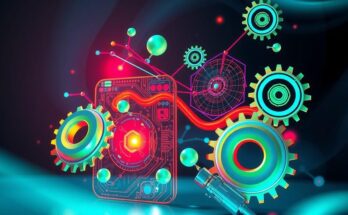The United Nations Security Council recently delved into the intricate landscape of rapid technological advancements, from artificial intelligence to neurotechnology. Robin Geiss, head of the UN Institute for Disarmament Research, emphasized how the remarkable speed of innovations like advanced robotics and generative AI presents both groundbreaking solutions and significant risks to global peace. He noted that while the electric grid took decades to reach millions, ChatGPT achieved similar reach in just two months, underscoring the urgent need for policymakers to adapt quickly.
Geiss raised critical points about quantum technology, predicting its transformative impact over the next decade. Quantum computing has the potential to upend traditional information security by making conventional encryption obsolete while also revolutionizing warfare through advanced detection methods. He suggested that we are on the brink of an era defined by artificial general intelligence capable of deep understanding, which could have profound societal implications, demanding preemptive action against potential threats.
In an engaging presentation, Professors Jocelyne Bloch and Grégoire Courtine unveiled their fascinating neurotech innovations. Bloch described their creation of a “digital bridge” connecting the brain to the spinal cord, which allows paralyzed individuals to regain mobility. With the ability to decode brain signals using AI, they have restored movement in tetraplegic patients and aim to expand these advancements to others with neurodegenerative conditions.
Addressing the societal impact, Courtine highlighted how these breakthroughs can dramatically change lives, benefiting both young athletes injured in their prime and veterans returning from conflicts. However, he cautioned about the potential misuse of brain-machine interfaces in military applications. The ability for patients to control drones with their minds raises ethical concerns and introduces new security threats.
The realm of neurotechnology, while promising, also introduces vulnerabilities. The devices, like the “digital bridge,” face risks from electromagnetic interference and hacking, putting sensitive neurological information at risk. Courtine stated, “What was science fiction a few decades ago is gradually becoming reality,” urging collective responsibility in shaping this new era ethically as we unlock life-altering advancements.
The UN Security Council discussed rapid technology advancements, highlighting both incredible opportunities and severe risks. With AI and neurotechnology revolutionizing possibilities, experts emphasize the urgent need for policymakers to adapt swiftly. Quantum computing poses significant implications for security, while groundbreaking neurotechnology offers hope for paralysis victims yet raises ethical concerns over misuse. The rapid pace requires collective action to manage the dual-edged nature of these innovations.
The discussion at the UN Security Council illuminates the fine line between innovation and risk as technology evolves. With the swift rise of AI, quantum computing, and neurotechnology, the need for responsible implementation and oversight is paramount. Understanding and anticipating the implications of these advancements will be crucial for safeguarding our collective future while harnessing the potential for positive transformation.
Technological advancements are developing at an unprecedented pace, presenting both remarkable opportunities and intricate challenges. Innovations in AI and neurotechnology promise breakthroughs in health and security but also introduce significant ethical dilemmas and risks for global stability. The dual-use nature of these technologies complicates the landscape, requiring urgent attention from policymakers and the global community.
Original Source: news.un.org



